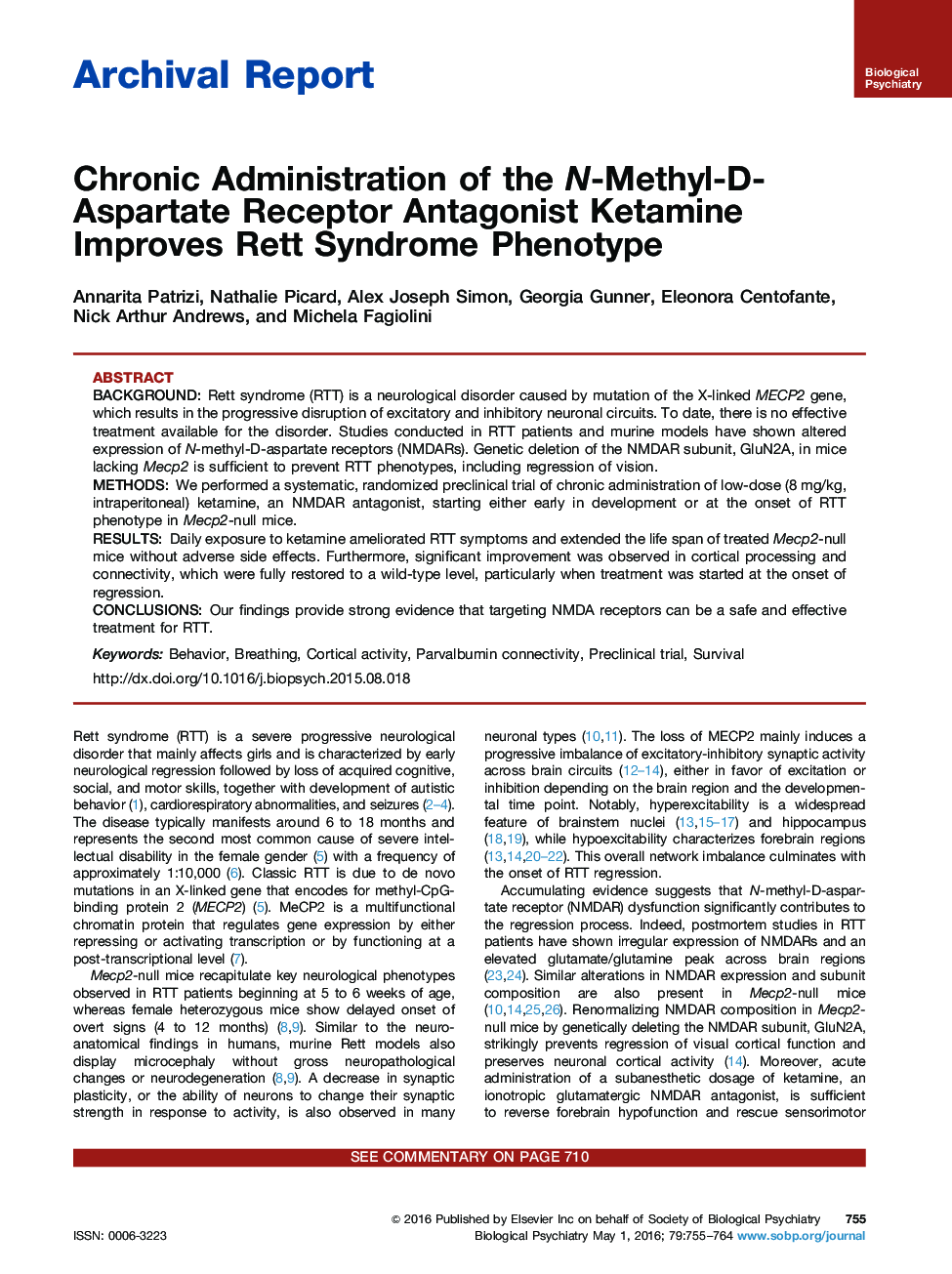| کد مقاله | کد نشریه | سال انتشار | مقاله انگلیسی | نسخه تمام متن |
|---|---|---|---|---|
| 4177031 | 1276374 | 2016 | 10 صفحه PDF | دانلود رایگان |

BackgroundRett syndrome (RTT) is a neurological disorder caused by mutation of the X-linked MECP2 gene, which results in the progressive disruption of excitatory and inhibitory neuronal circuits. To date, there is no effective treatment available for the disorder. Studies conducted in RTT patients and murine models have shown altered expression of N-methyl-D-aspartate receptors (NMDARs). Genetic deletion of the NMDAR subunit, GluN2A, in mice lacking Mecp2 is sufficient to prevent RTT phenotypes, including regression of vision.MethodsWe performed a systematic, randomized preclinical trial of chronic administration of low-dose (8 mg/kg, intraperitoneal) ketamine, an NMDAR antagonist, starting either early in development or at the onset of RTT phenotype in Mecp2-null mice.ResultsDaily exposure to ketamine ameliorated RTT symptoms and extended the life span of treated Mecp2-null mice without adverse side effects. Furthermore, significant improvement was observed in cortical processing and connectivity, which were fully restored to a wild-type level, particularly when treatment was started at the onset of regression.ConclusionsOur findings provide strong evidence that targeting NMDA receptors can be a safe and effective treatment for RTT.
Journal: Biological Psychiatry - Volume 79, Issue 9, 1 May 2016, Pages 755–764